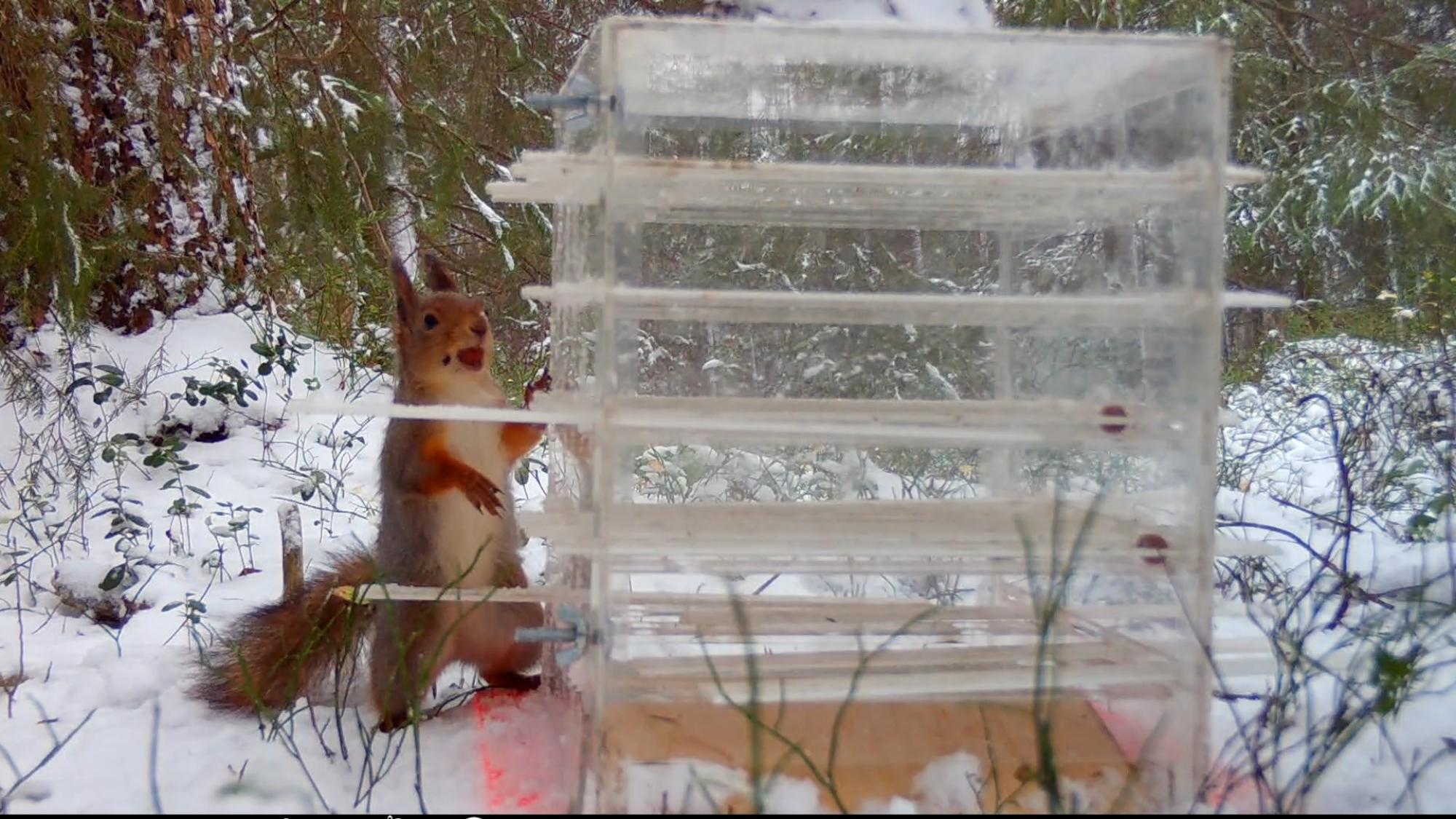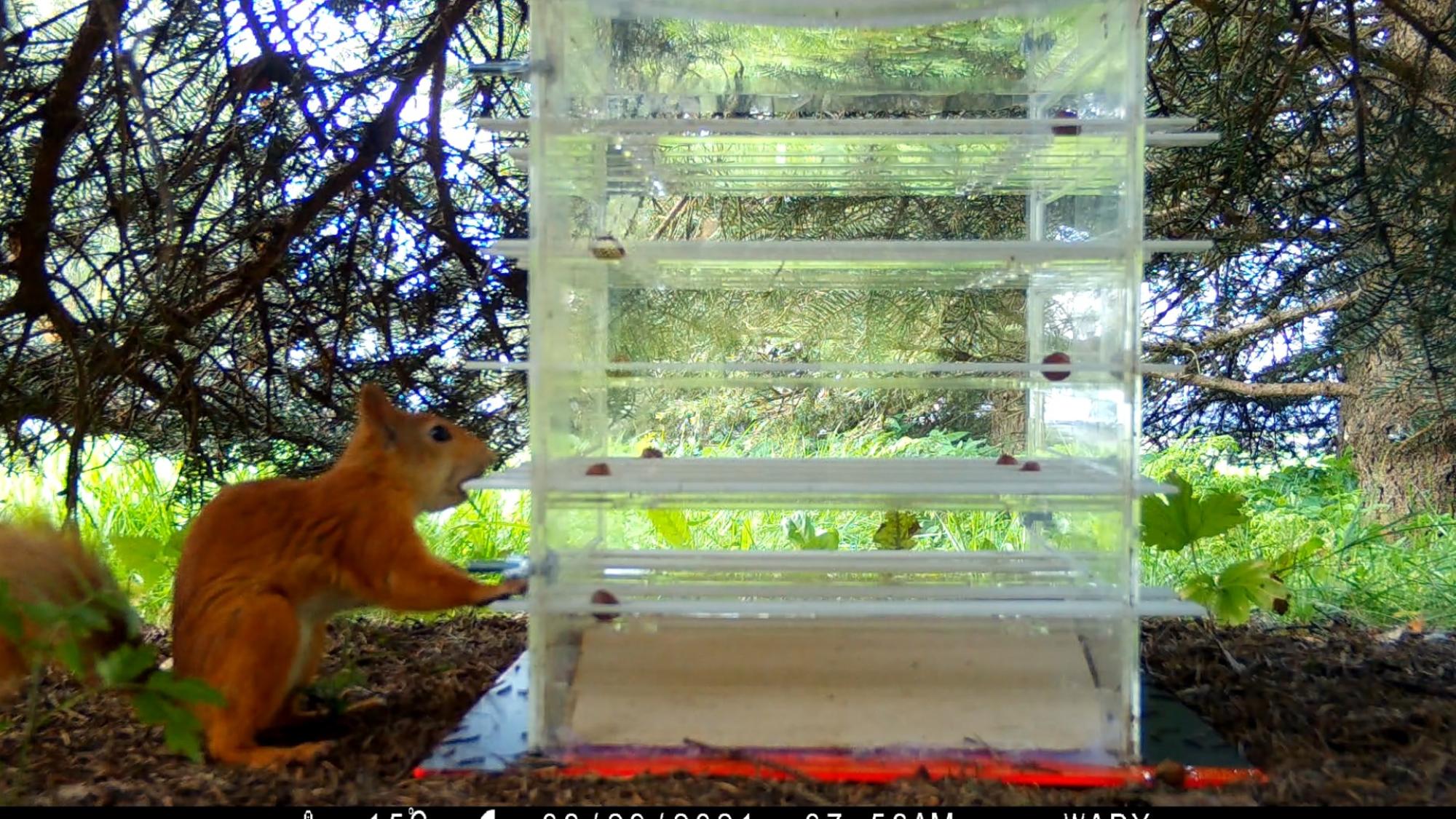New research increases understanding of how urban squirrels think and react to humans

The study sheds light on how humans influence the cognitive traits of wild animals living in cities. Researchers from the universities of Oulu and Chester looked at the ways different levels of human presence and types of human activity - walking, dog walking, cycling, and playground activities - in addition to how close they are, influence squirrels’ innovative problem-solving ability.
Problem-solving is regarded as an important cognitive trait, and part of how squirrels and other wildlife acquire, store and use information to react to the environment.
Across 15 green spaces in urban areas of Oulu, Finland, the research team monitored the effects of human intensity and activity on the proportion of Eurasian red squirrels who could solve a novel problem - extracting hazelnuts from a puzzle box by pushing and pulling levers. Solving the puzzle also required them to change from their typical foraging pattern in trees, to the ground.
The findings, published in the Behavioral Ecology journal, showed that overall, greater human presence significantly reduced the number of squirrels that solved the task, both at the site and individual level. Playground activity had the most negative effect overall, while walking significantly reduced the chances of an individual squirrel solving the puzzle.
Dr Olli Loukola, a collaborator at the University of Oulu, shared more on the findings: “Our motion-triggered cameras revealed that nearly two-thirds of dog walkers ignored the leash law in public parks in Oulu. While Finns are usually great at following rules, it seems many simply don’t realise that letting dogs roam freely can stress out urban wildlife. This study helps raise awareness of how small everyday choices can affect animal behaviour.”
Dr Pizza Ka Yee Chow, the study’s lead researcher, said: “Our results may be useful for evaluating or tightening existing urban management and policy, such as leash laws or pet‑free zones around key foraging sites, which could alleviate stress on urban squirrels and other wild animals.”
Watch video on how a squirrel gets a nut out of a puzzle box. Video: Pizza Chow / University of Chester
Ecology and Genetics Research Unit
